George Oldziey Interview Restored



The Wing Commander Orchestral Recording Project Volume 2 has crossed $9,000. If it's going to succeed, we're going to need a big push this next week... so please keep sharing the campaign!
Today, we've restored a 2004 interview with George Oldziey from the depths of the Internet Archive. This text interview was originally conducted by a Wing Commander fan running a site called E-Boredome. It's a great, in-depth warts-and-all look at George's work on Wing Commander and Ultima (in short, working on Wing Commander Prophecy was more difficult than working with a singular creative vision from Chris Roberts or Richard Garriott.) Here's the text:
INTERVIEW WITH
GEORGE OLDZIEY
This article is by Mat
Back in 1994, an action-packed space-sim was released that featured four CD's worth of Full-Motion Video sequences, Hollywood actors such as Mark Hamill and Tom Wilson, and an orchestral score worthy of a feature film: Wing Commander III: Heart of the Tiger. George Oldziey composed the music for that game as well as its sequels, Wing Commander IV: The Price of Freedom and Wing Commander: Prophecy. He also composed music for Ultima Online and has worked as a Lead Orchestrator & Arranger for Robert Rodriguez's music on Spy Kids 3-D: Game Over and Once Upon a Time in Mexico.
In this interview, Oldziey describes the experience of working in different established game franchises, collaborating with Robert Rodriguez, and the difference of composing music for FMV sequences and gameplay. You can visit his website to listen to samples of his latest work, read his biography, and learn about all the different games and films he has composed music for in the past.
E-BOREDOM: Does music in movies serve a different purpose than music in games?
GEORGE OLDZIEY: I think it serves the same purpose but in different ways. I've always felt that the main function of music in movies and games is to provide an emotional element that helps tell the story. It shouldn't necessarily be emotional, but in combination with all the other elements it should help provide something intangible that visuals, dialogue and sound can not do by themselves.
I know that sounds a little cryptic, but whenever I compose for film or games, I always go by how I feel when listening to the music with all the other elements combined. It's usually not an intellectual process, it's an emotional one.
E-BOREDOM: The first instrument you learned to play was accordion, but later decided to switch over to trumpet. Why the switch?
GEORGE OLDZIEY: I didn't really appreciate the sound of the accordion when I was 7 years old. I was very good at it, but not that inspired by it. I took to the sound of the trumpet as soon as I blew into one for the first time (I was about 9). Having studied the accordion did help me in the fact that I already knew how to read rather complicated musical figures when I first took up trumpet. It also gave me rudimentary keyboard skills which was the foundation for my taking up piano later in life.
E-BOREDOM: Did studying the improvisational aspects of jazz help you with learning music composition?
GEORGE OLDZIEY: I firmly believe that the part of your brain that one uses for musical improvisation is the same for musical composition. In many ways it's the same process. I tell my students that the composer has the advantage over the improviser in the fact that you can edit your ideas before you commit to them. But the creative process is very similar.
I'm not sure if studying jazz improvisation helped with classical composition per se, but it definitely helps to establish the mindset where you encourage the flow of new ideas. It also helps me to come up with ideas quickly, like when I'm under a strict deadline.
E-BOREDOM: Before starting work for Origin Systems, did you have any preconceived notions of what video game music sounded like?
GEORGE OLDZIEY: No, not really. As a matter of fact, I was completely computer illiterate until I got the job at Origin (not sure if I should be telling you that :) ). Thus, my "gaming" experience was pretty much limited to watching others play them. But to me, composing music for Origin (or any other games for that matter) had less to do with composing good game music as it was composing good music period, within the limitations of the technology.
Those limitations in a way were very inspiring, because a) they provided a framework in which to work, which is very helpful when trying to compose, and b) made it more challenging and thus much more fun.
E-BOREDOM: Before starting work on composing music for Wing Commander III, did you listen to any of the music from the previous Wing Commander games?
GEORGE OLDZIEY: The only music from prior WC games that I listened to was the few select themes that the producer, Chris Roberts, wanted me to quote or emulate in Wing Commander 3. You may remember that there is a reference to the old Wing theme in a fanfare before the opening credits music for WC3. Also, there was some music from the old games that was used for "running to your ship" that Chris wanted to emulate. Other than that, I was pretty much on my own. I'd have to say that the great Star Wars and Star Trek scores that were out at the time were inspirational for me and for Chris as well.
E-BOREDOM: Wing Commander IV is a much darker game than its predecessors... How did you work on the score to reflect this?
GEORGE OLDZIEY: Chris Roberts likes scores that are on the darker side in general. It was pretty obvious from studying early demos of the game and early cuts of the movies that this was going to be a dark story, so naturally the inspiration for the musical timbres came from that. Since I come from a Polish family I think I was born with one of those dark Polish musical souls to begin with.
Outside of the obvious choices of orchestrations which emphasize darker timbres, such as low strings, winds and various percussion effects, and the use of harmonies such as minor chords and dissonant clusters and such, it's difficult to put a finger on it, except to say that I was just trying to paint the musical picture that came into my head when reading the script or watching the film. BTW, this was my favorite Wing Commander game, at least in terms of how the music and all the other elements came together.
E-BOREDOM: Wing Commander: Prophecy featured a new nemesis, an organic alien race bent on destruction. Was it challenging composing music to represent this new alien race that wasn't present in the previous two games?
GEORGE OLDZIEY: The big difference compositionally between Prophecy and the others is in the use of assigning musical elements to characters, moods, or situations. WC 3 and 4, much like Star Wars, was very thematic. In other words, each main character, as well as certain locations and psychological conditions, had its own theme. In Prophecy, I instead assigned various harmonies and orchestrational combinations (choices of instruments) to reflect the same ideas. For instance, whenever you see the aliens in Prophecy, you would hear the same (or very similar) dissonant chord with certain instruments as opposed to a melody that you could immediately say, "Oh, that's what's his name's theme."
One reason for doing this was the new producer's wish to try to have Prophecy look and sound different that the others. At first I resisted, wanting more continuity and connection to the music from my previous work. But then I accepted it as another challenge which, in hindsight, turned out pretty well. There are moments however, like in the scene when Blair reflects on his life after being interrogated by the aliens, where I snuck in themes from the other games.
E-BOREDOM: What were the differences in working with Chris Roberts and the WC: Prophecy Team?
GEORGE OLDZIEY: I thoroughly enjoyed working with Chris Roberts on Wing 3 and 4. I was very fortunate that we seemed to be on the same musical page most of the time. Once I established a sound that he liked at the beginning of my work on Wing 3 there was very little in the form of musical rewrites. He would occasionally refer me to various musical examples from films to help convey his ideas to me. This was always helpful.
we would sometimes meet to discuss ideas. But for the most part, once we all got into the flow of things with those deadlines looming I was mostly on my own. I would be assigned a gameflow piece, or a film cue, and would only need to demo it for him before it was sent off to final. Occasionally there was some inevitable tweaking, but I almost never had to start over from scratch on any cue.
Prophecy, on the other hand, was very frustrating at first. I really felt that the producer so wanted to separate his work from Chris Roberts, and thus look for totally new ideas, that he got off track on what Wing Commander was all about. I really believe that Wing Commander fans almost expect a certain look, feel and sound that is unique to those games. The improvement comes from coming up with new ideas on what's already worked, and making the most of the new technology. For that reason my musical concept did not change much from Wing 3 to Wing 4, but the technology did, so I was able to use much more sophisticated instrumentation for Wing 4.
With WC Prophecy, the working relationship with the producer was so bad at first that any time I composed anything that even sounded remotely like earlier Wing Commanders they threw it out. Eventually we came to a better understanding. But I still feel that the score for that game, as well as the game in general, lacks a lot of the cohesiveness of the earlier games.
E-BOREDOM: What differences were there in composing music for FMV's and for gameplay sequences?
GEORGE OLDZIEY: It's similar to the difference to what they call "underscore" and "wild" in film music. Underscore is synchronized closely with the action and dialogue in a film, reacting to the action with timings down to the frame. Wild refers to music that has no specific reference to events in the film, but is basically a self contained piece of a specific duration and mood. In that regard, underscore in film and game music is pretty much the same thing.
The big difference comes in gameplay, where it is similar to "wild" music in film but needs allowances for the interactivity of a particular game. In other words, a mission piece from Wing 3 or 4 would be of a set duration and mood, but would need to flow into another piece, say like when you are under attack, that would interrupt the mission piece when you come under fire. Both pieces would have to be similar enough to flow together, but have a definite difference in mood and intensity. I found this aspect of composing for those games very interesting, challenging, and lots of fun to figure out.
E-BOREDOM: How was it to work with Richard Garriot when composing music for Ultima: Online and Ultima IX: Ascension?
GEORGE OLDZIEY: I loved working with Richard. He is very musically intuitive as well as very clear about what he wants from the music in his games. The most interesting and fulfilling aspect of composing for a game like Ultima Ascension was Richard's use of "virtues." Ultima Ascension had several different opposing virtues that were to be portrayed by various characters and locations (courage/cowardice, love/hate, etc.) and each one needed a musical idea. Each musical idea not only needed to have enough musical integrity to stand on their own, but also needed to be blended in various combinations with the others depending on what was happening in the game.
I remember that there was a climactic battle piece where all the virtues came together, so I had as many as 6 themes going on at the same time! The average person could probably make out 1 or 2 at a time so it was quite a challenge to make that work without sounding jumbled. There are musical "tricks" to accomplish that that I would describe in a musical theory class, but I'll spare you right now :)
E-BOREDOM: The WC games have a very epic sci-fi feel to their score while the Ultima games you worked on have more of a fantasy feel with a Celtic influence. What is the difference in working on a fantasy score as opposed to a science-fiction score?
GEORGE OLDZIEY: You already did a pretty good job of describing it yourself! Generally speaking, epic sci-fi calls for grand orchestral colors for the most part, with variations depending on the action, dialogue, etc. That's not to say that you wouldn't throw in non-traditional instruments into the mix, which I actually think is great. The big variation comes from how you orchestrate the cues, choice of harmonies, use of themes (or not). An orchestra gives you an infinite set of possibilities with which to work.
Fantasy games/films can still call for orchestra (and very often do) but I think you are very observant when you noticed the Celtic feel of a game like Ultima. I think the use of those sounds gives the score an earthier, more organic quality, and thus more of a primal connection. A lot of the making of these kinds of decisions for a score comes from researching what's been done before in similar circumstances and then coming up with your own ideas.
E-BOREDOM: What were some of the challenges involved when working on the score for Spongebob Squarepants: Revenge of the Flying Dutchman?
GEORGE OLDZIEY: That was the most fun I've ever had in the music business. It helps to have had a 10 year old son who was really into it at the time (he's 13 now and more into Lord of the Rings). Talk about reliving your childhood. I felt like anything was at my disposal, and didn't throw away any idea, no matter how wacky I thought it was. I kind of took the cue of the old Warner Bros. cartoons like Bugs Bunny and Road Runner in terms of how they shift styles so suddenly and in completely opposite directions. That was the way I approached the feel for the game as a whole.
The producers gave me good directions in terms of cartoon and film music they saw as working in various situations, and I used that as a reference, then just had fun with it. Most of the stuff I write I don't listen to much after it's done, but I just don't get tired of hearing those Spongebob tunes. Maybe I've lost my mind a little from that one!
E-BOREDOM: How did you meet Robert Rodriguez, director of the Spy Kids and El Mariachi movies?
GEORGE OLDZIEY: I think Robert's philosophy, or at least his experience on many of his projects, is that many times he'd rather not spend time and effort explaining what he wants to a composer, editor, or whoever if he can do it himself. Plus, he likes to be where the action is at any given time during the production and post-production of his films. In order to be able to assume so many roles in his film productions, Robert surrounds himself with good people whom he can trust to help realize his vision.
Composing his own music stems from this. I think he'd rather try to get the tunes that are in his head down and produced than to depend on another composer to create something brand new. I met Robert through a sound engineer friend whom I knew at Origin Systems who later went on to work for Chris Roberts at Digital Anvil, the company that Chris started when he left Origin in '96. Robert had been using some visual effects guys on the first Spy Kids film that also worked for Chris. If I remember the story correctly, Robert was visiting Digital Anvil one day to meet with the fx guys, and afterward wandered into the audio dept. just to look around. I think at the time he was already thinking about scoring his own music because he asked my buddy if he knew anyone in town (Austin) who could do orchestration. My friend mentioned me and gave Robert a copy of my demo CD. The rest is history. Needless to say, I bought my friend and his date a very expensive dinner after Spy Kids 2 was finished.
E-BOREDOM: How does your collaboration with Robert Rodriguez work?
GEORGE OLDZIEY: It's a lot of fun working with Robert. He's very talented and intuitive in many areas, including music. Robert began composing music (officially) for his films with Spy Kids 2. Since Robert is not a formally trained musician, my job is to take the musical sketches he makes and see them through to the scoring stage.
The first step is to create what are called MIDI mockups for a cue. That's when one creates a synthesizer/sampler based arrangement of what the final orchestral version will sound like. For that we use Digital Performer and sample libraries loaded into a software based sampler called Gigastudio. With many cues I get to contribute a lot of my own musical ideas, and there are others that Robert fleshes out mostly on his own. A lot of that depends on the deadlines because Robert usually has other things going on while the music is being composed (he IS the director after all).
When the cue is sounding the way Robert wants then it's my job to make sure it gets orchestrated accurately and thoroughly. I try to do that myself, but if we are facing tough deadlines I'll hire other orchestrators and check their work before it all goes off to the copyist/music prep people. This gets done for each cue in the film. Next, I work with the music contractor who hires the right combination of musicians to cover all the parts in the scores. Finally, when we arrive at the scoring stage, I serve as booth captain, which means I check the scores while the orchestra is recording to make sure the cues are getting performed properly. My job is pretty much done when we wrap up the last scoring session. Then I sit back and enjoy listening to the mix.
E-BOREDOM: Any differences between composing music for films and for games?
GEORGE OLDZIEY: They are actually two very similar processes. I've already mentioned the difference regarding the interactive aspect of some game music. At least from the projects I've done, the main difference has been deadlines. With games, many times the ship date of the game gets delayed because some part of the game isn't up to spec. Since game music is often being composed during the middle of the development cycle, this means that a composer's milestones will also be moved later.
This does not happen in film. Many times, film release dates are set in stone before the shooting starts. So, if the shooting schedule slips that means there is less time to compose and produce the music since the release date stays the same. The other main difference is budget (again, at least with the projects with which I've worked). With the exception of Ultima Ascension, I rarely get to work with more than a handful of musicians on most game projects. Sometimes it's just me, like with the WC music, which was all electronic.
I've worked with Robert Rodriguez on four films now, and each time (except for Spy Kids 3 which was mostly sample based) we've enjoyed working with a full orchestra whose rosters included some of the finest musicians in the world while recording in spaces like 20th Century Fox or Skywalker Sound. Makes me drool thinking of ever having that opportunity with the Wing Commander music!
E-BOREDOM: What current projects are you working on?
GEORGE OLDZIEY: I'm currently working on a documentary by a director named Andy Cockrum entitled Team Everest '03. It's about a group of peopled with disabilities that climb to base camp at Mount Everest. It's very inspiring.
I've also recently completed working on another documentary called In the Shadow of the Blade, which chronicles the reunions and subsequent stories inspired when Viet Nam War veterans visit the landing sites of a Huey helicopter, which flew to dozens of cities around the US a few years ago. That one will be featured on the Discover Channel some time this Fall. You can check out some music from both these films (and all my other projects) at my website. I am slated to work with Robert on Sin City. I believe that the release date is some time in January '05, so that means we will be very busy with the music this Fall. I'm looking forward to it.

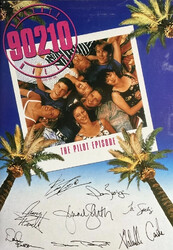
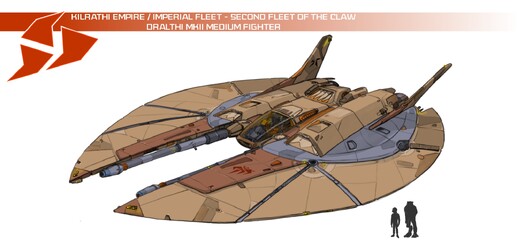
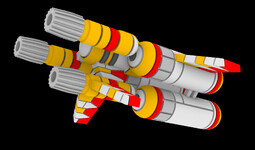
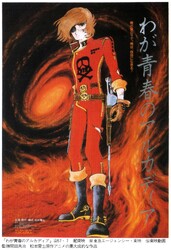
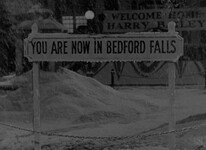
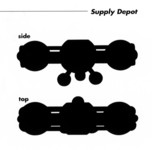
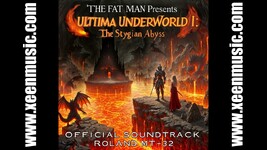
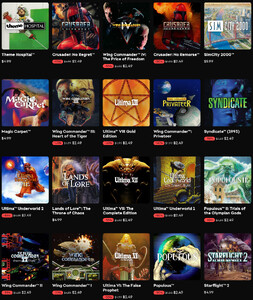

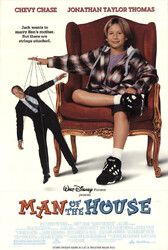
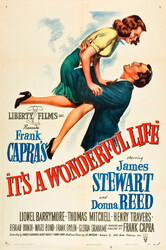
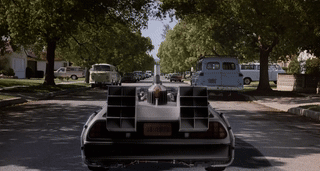

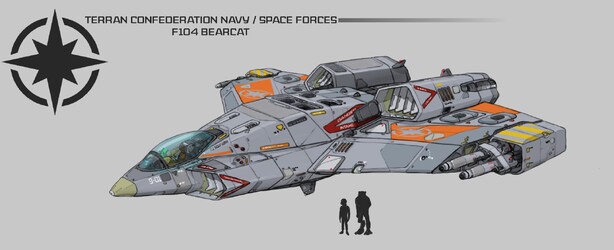
Follow or Contact Us